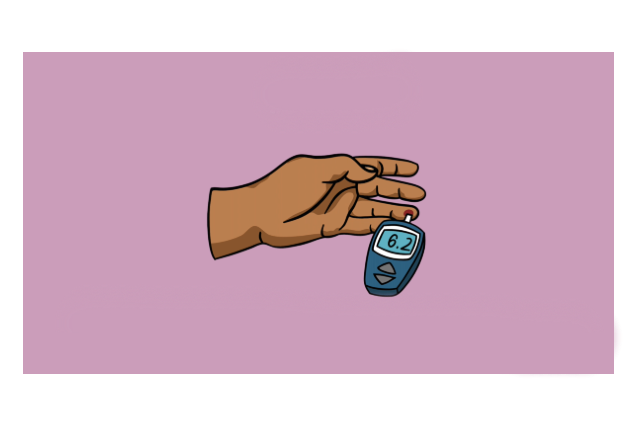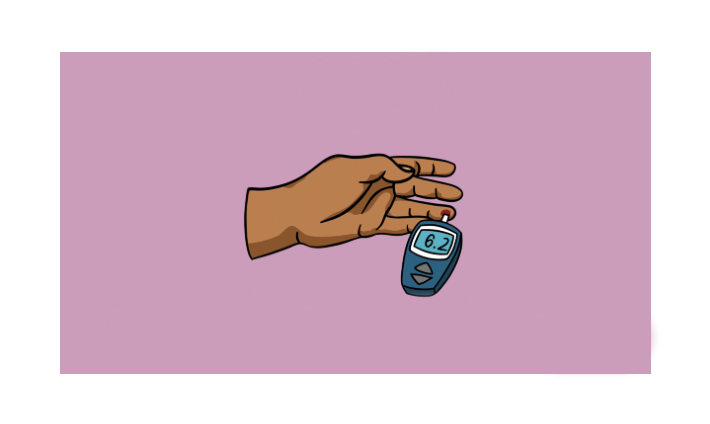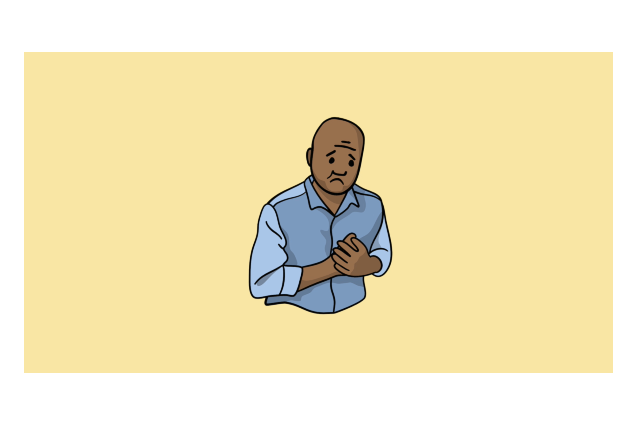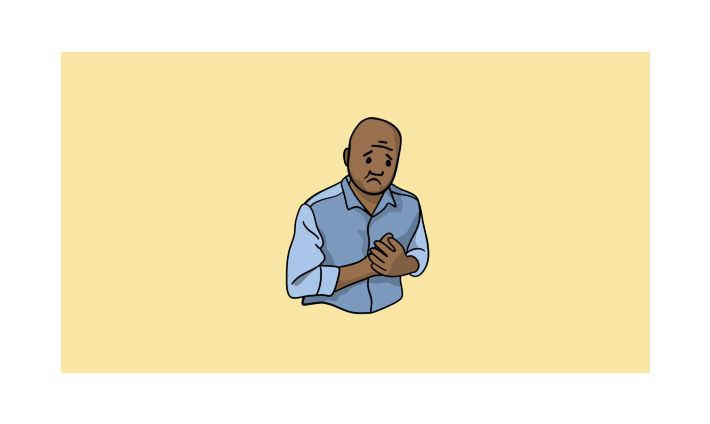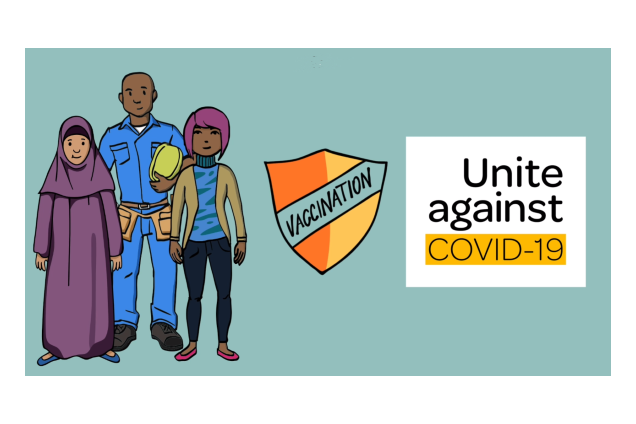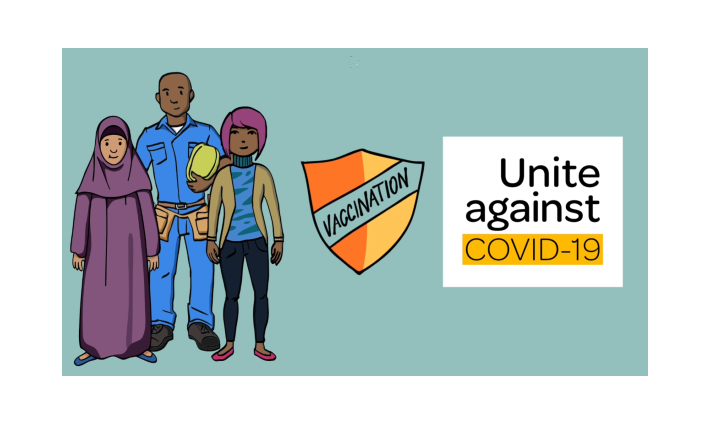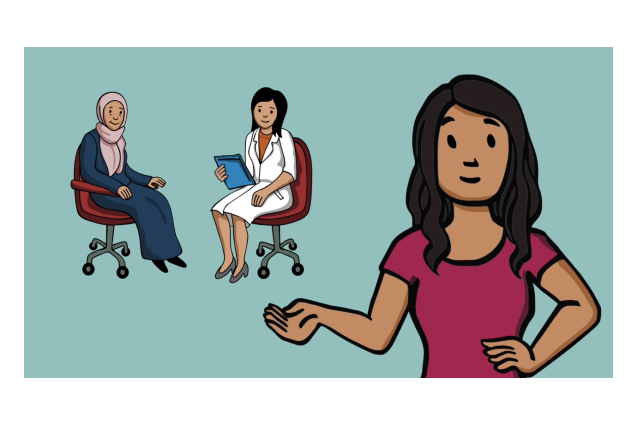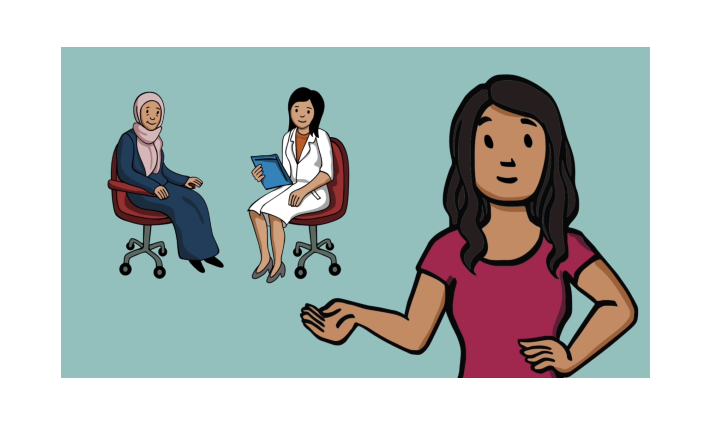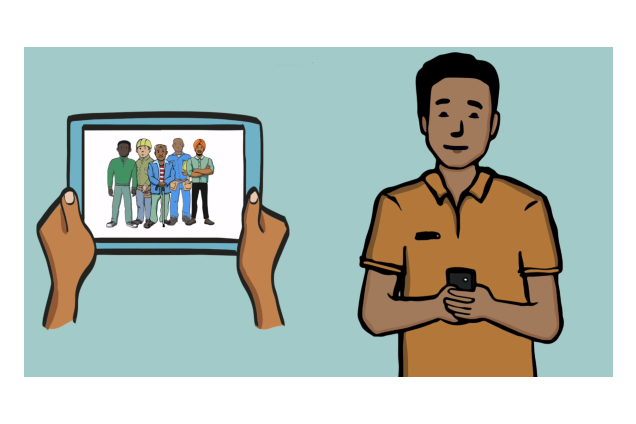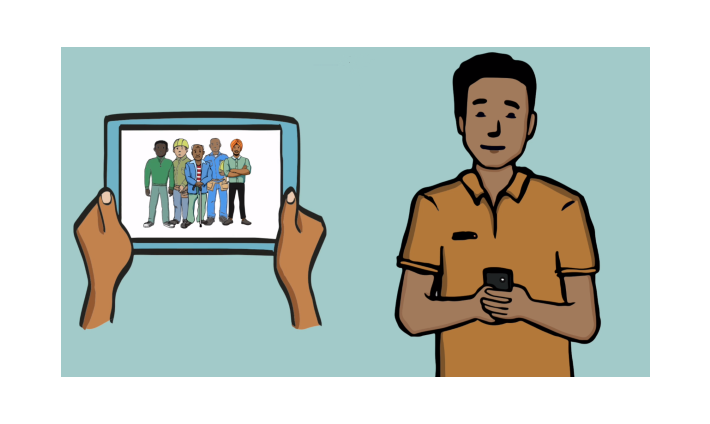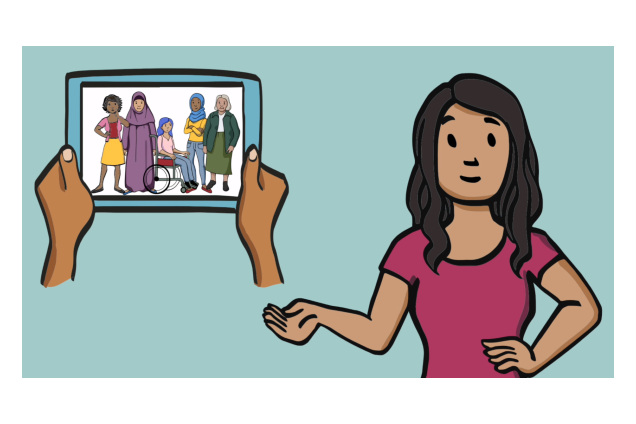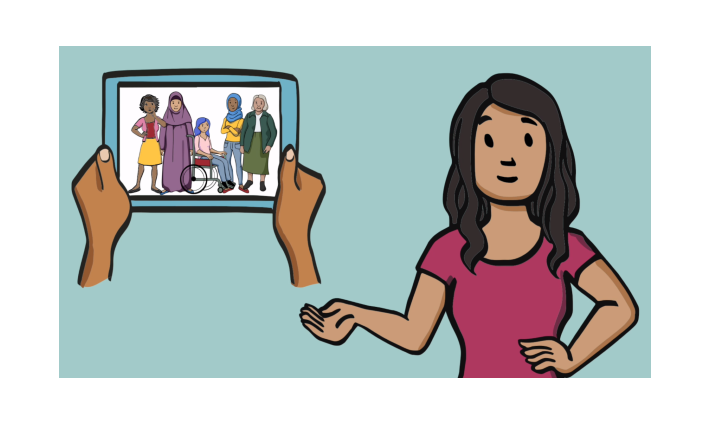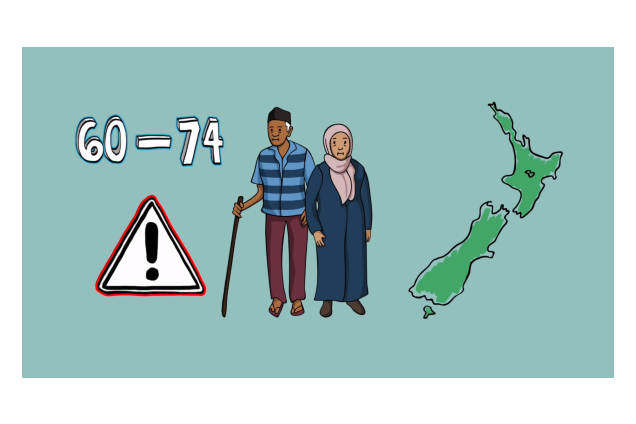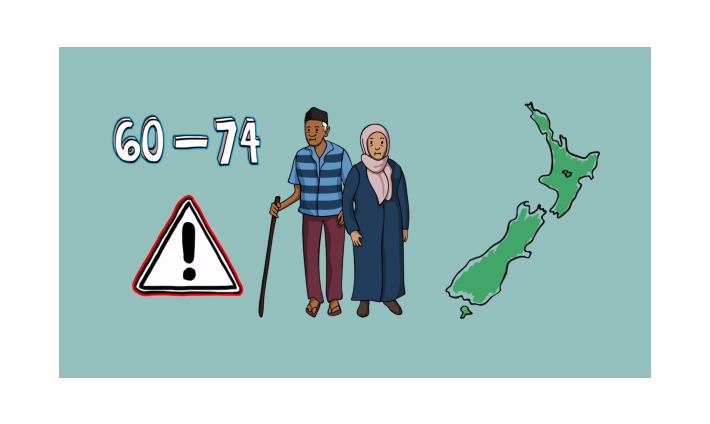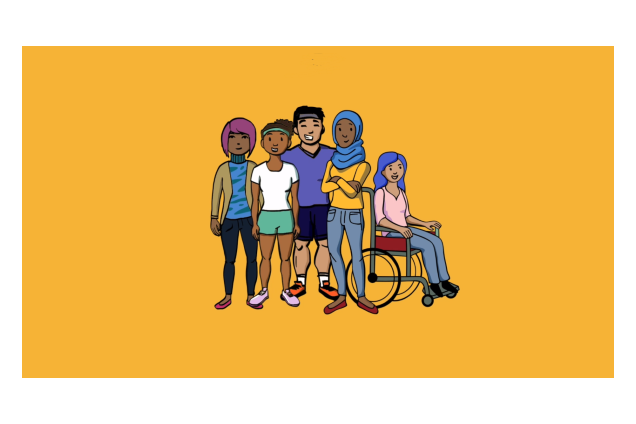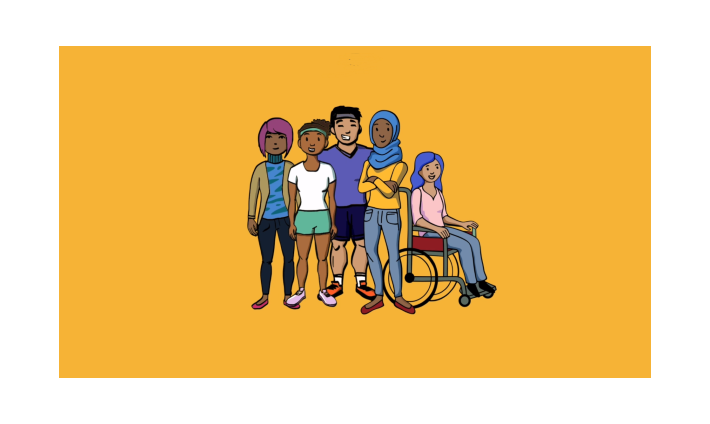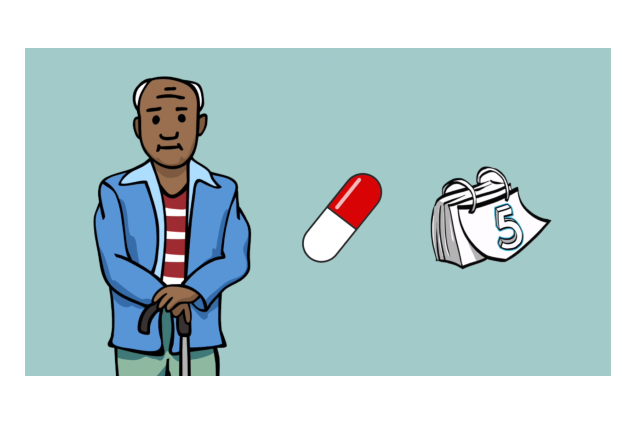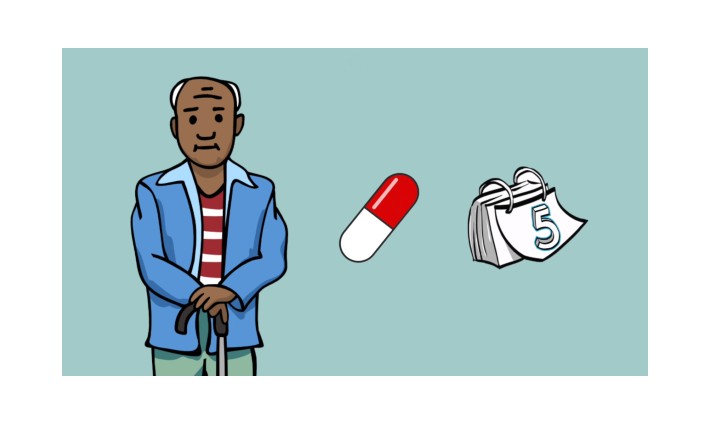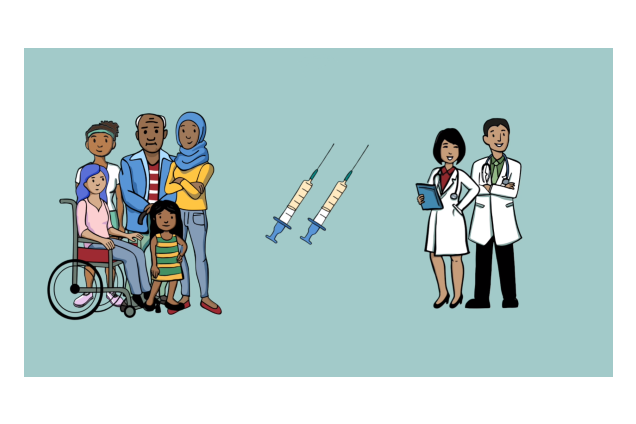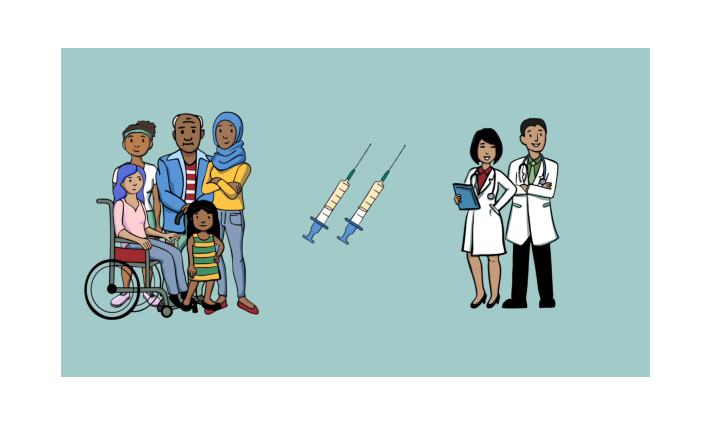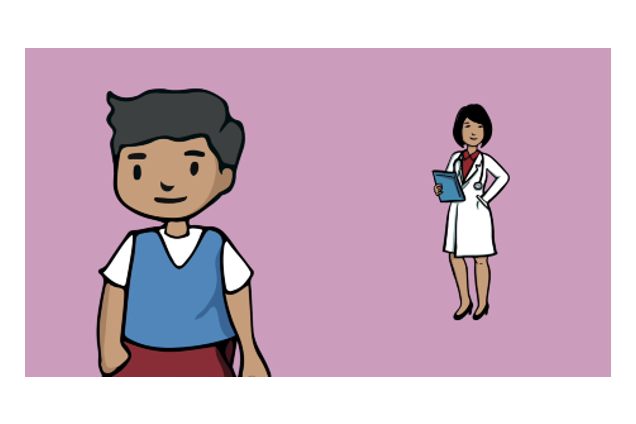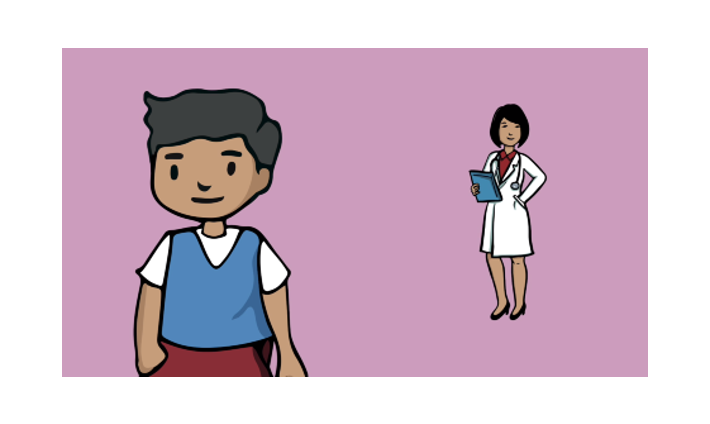On this page
Measles, Mumps and Rubella
-
What is measles?
Measles is a viral disease that can cause serious illness. Learn about the symptoms and what to do if you catch measles.
-
Protecting yourself against measles
Your best protection against measles is to get vaccinated. Find out about the MMR vaccination, including how, when and where to get immunised.
-
Misinformation
Misinformation is easily spread and can cause harm if people are unable to tell if it’s verified or not. Take time and reflect when reading.
Video transcripts
Find the transcripts to our Measles, Mumps and Rubella videos.
-
Measles is a viral disease that can cause serious illness. It can lead to pneumonia, deafness, brain infection and sometimes even death, and can easily spread between people by breathing, sneezing, or coughing.
It is one of the most contagious illnesses. You can catch it simply by being in a room within two hours after someone with measles has been in the same room.
Some of the common symptoms of measles are: red blotching rash, fever or cold-like symptoms, sore watery pink eyes, cough, runny nose.
The rash normally starts to appear about 3-7 days after the other symptoms. It starts on the face and can spread to the rest of your body.
If you have any symptoms of measles, you should urgently seek medical advice. Call your family doctor, nurse, vaccinator or pharmacist, or Healthline for free on 0800 611 116.
It’s important you do not visit a hospital or medical centre without calling first, as you may risk passing it on to other people.
People in the following groups can be at greater risk of serious illness from measles:
- Some people with a chronic illness or weak immune system.
- Children under 5 who have not had at least 1 dose of the MMR vaccine.
- Babies younger than 12 months who are too young to get the first dose.
- Older people and those who are pregnant.
- If you catch measles, you will need to stay home and isolate. It takes around 7-10 days to fully recover but you can leave your home 4 days after getting the rash if a health professional advises you it’s safe to do so. Around 1 in 10 people may need to go to hospital because of more serious measles symptoms.
You are unlikely to catch measles if you:
- have had measles before,
- have had 2 doses of the vaccine, and the 2nd dose was more than a month ago,
- have had a blood test showing you are immune.
- If you or your baby under 12 months have been near someone with measles and you haven’t been vaccinated, you should contact your doctor, nurse, vaccinator or
- pharmacist. You may be able to receive an injection to prevent you from getting measles.
You will also need to isolate for around 14 days. Your doctor, nurse, vaccinator or pharmacist can explain when you need to isolate and for how long.
If you are immune, you won’t need to stay home and isolate if you come into contact with someone who has measles. If you’re unsure if you’re immune or want to check your vaccinations status from your home country, please talk to your healthcare provider.
For any other information, talk to your doctor, nurse, or pharmacist. You can also call Healthline for free on 0800 611 116 or visit info.health.nz/measles for more information.
Health and wellbeing are some of the most important things for our ethnic communities. In 2022, we ran a series of health events across the country, and you told us that you wanted to learn more about health services available in Aotearoa New Zealand.
So, we partnered with Te Whatu Ora to create a series of videos to help explain what measles is, the symptoms of the virus, and how to protect yourself.
-
Measles is a viral disease that can cause serious illness. It is one of the most contagious diseases.
Symptoms include fever, cold-like symptoms, red eyes, and a spotty rash that can last up to a week.
It can lead to pneumonia, deafness, brain infection and sometimes even death, and can easily spread between people by breathing, sneezing, or coughing.
Your best protection against measles is to get vaccinated. There are three viral infections that the vaccine protects you against: Measles, Mumps, Rubella. This is why it’s called the MMR vaccine.
By getting vaccinated, you will not only be protecting yourself and your family, but you’ll also stop the disease spreading in your community.
Different countries give vaccines at different ages. In New Zealand, two MMR vaccinations are given to babies, one at 12 months of age and a second dose at 15 months.
However, because of changes to vaccination timing, it is possible some people may have missed one or both doses. If your child is over 15 months old and hasn’t had their first or second dose, talk to your doctor, nurse, vaccinator, pharmacist or your local health clinic. It is easy and safe to get catch-up vaccinations.
Everyone born in New Zealand before 2004 is encouraged to check with a parent, caregiver or family doctor to see whether you had both MMR vaccinations as a child. If you missed getting an MMR vaccination, it’s free for everyone under 18 years old. It does not matter what your visa or citizenship status is.
For people over 18 years old, the MMR vaccine is free if you’re a resident, or eligible for free healthcare in New Zealand.
It’s possible you or your family may have had similar vaccinations in your home countries. If you’re not sure, it’s best to play it safe and get vaccinated.
If you’re travelling to a country with known measles cases, you should check with your healthcare provider to make sure you are up to date with MMR vaccines.
If you have a baby aged under one, talk to your healthcare provider about having an early dose of the MMR vaccine to protect them while they are travelling.
Most people can get the vaccine, however those who are pregnant should have the vaccine after the birth of their baby, and those on medication for immune issues should speak to their vaccinator first. It helps if other people in the family or household are vaccinated.
MMR vaccines are free at your local health provider and many pharmacies. The MMR vaccine has an excellent safety record and has been used in Aotearoa New Zealand for over 30 years. It has been reviewed for safety and effectiveness, and is regularly monitored.
The MMR vaccine can sometimes cause reactions. These are usually mild, and not everyone will get them. Mild reactions are normal and show that your immune system is responding to the vaccine.
Some people may get a mild reaction between five and twelve days after immunisation, like a mild fever, rash or swollen glands. Other mild reactions that can happen, usually within one or two days of immunisation, include:
- headache, a slight fever (feeling hot),
- nausea (feeling sick), fainting or
- feeling faint, generally feeling a bit unwell.
If you’re unsure if you’re immune to measles or want to check your vaccinations status from your home country, please talk to your family doctor, nurse, vaccinator, or pharmacist.
For any other information, talk to your doctor, nurse, or pharmacist. You can also call Healthline for free on 0800 611 116 or visit info.health.nz/measles for more information.
Health and wellbeing are some of the most important things for our ethnic communities. In 2022, we ran a series of health events across the country, and you told us that you wanted to learn more about health services available in Aotearoa New Zealand.
So, we partnered with Te Whatu Ora to create a series of videos to help explain what measles is, the symptoms of the virus, and how to protect yourself.
-
There is often a lot of misinformation associated with vaccinations, and this has become more common in recent years.
Misinformation is easily spread and can cause harm if people are unable to tell if it’s verified or not.
Sometimes it’s not easy to tell if something is misinformation or not, but generally speaking, misinformation is false, inaccurate, or misleading information that is mistakenly or accidentally created or spread. It can cause significant damage to society and its people.
With easy access to the internet, anyone can publish information that can be seen by almost anyone. While this can be positive, it also means that incorrect and harmful information can spread quickly.
It is important to understand that not all information online is verified. It can sometimes be hard to know what is credible and what isn’t.
You might see misinformation on social media, in memes, on websites, videos, or in publications, like pamphlets that arrive in your letterbox.
This can cause harm because people might make important decisions based on the incorrect information that they read or hear. For example, it may stop people from receiving safe medical treatment, putting them at higher risk.
Take time and reflect when reading, particularly around health information. If you’re unsure if the content is credible, don’t share it.
It’s important to know where you can go to access reliable information. You can find accurate and reliable information about healthcare in Aotearoa New Zealand from sources such as:
- Te Whatu Ora, Health New Zealand
- Ministry of Health
- Immunisation Advisory Centre
- or from your own doctor, nurse, vaccinator or pharmacist.
If you have any health concerns or would like more information on health services available in Aotearoa New Zealand, talk to your doctor, nurse or pharmacist. You can also call Healthline for free on 0800 611 116 for more information.
Health and wellbeing are some of the most important things for our ethnic communities. In 2022, we ran a series of health events across the country, and you told us that you wanted to learn more about health services available in Aotearoa New Zealand.
So, we partnered with Te Whatu Ora to create a series of videos to help explain what measles is, the symptoms of the virus, and how to protect yourself.
Videos in different languages
- Arabic | عربي
- 简体中文 | Chinese (Simplified) - voiceover in Mandarin
- 繁體中文 | Chinese (Traditional) - voiceover in Cantonese
- Farsi | فارسی
- Français | French
- ગુજરાતી | Gujarati
- हिन्दी | Hindi
- Bahasa Indonesia | Indonesian
- 日本語 | Japanese
- 한국어 | Korean
- Português | Portuguese
- ਪੰਜਾਬੀ | Punjabi
- Af-Soomaali | Somali
- Español | Spanish
- Tagalog
- தமிழ் | Tamil
- ภาษาไทย | Thai
- Urdu | اُردُو
Find out more about Measles, Mumps and Rubella
Diabetes and Heart Disease
-
Diabetes
Diabetes is a health condition that if, not controlled, can result in significant damage to many parts of your body.
-
Heart disease
Coronary heart disease is one of the leading causes of death in Aotearoa New Zealand.
Video transcripts
Find the transcripts to our Diabetes and Heart Disease videos.
-
Your health is at the centre of your family’s health, so it’s important to maintain a healthy and active lifestyle to avoid some of the more serious diseases such as diabetes.
Diabetes is a health condition that if not controlled, can result in significant damage to many parts of your body.
For people with diabetes, sugar is not processed properly. There is a hormone in your body called insulin which controls sugar levels to keep the amount of sugar in your blood at the right level. When you have diabetes, your body does not produce enough insulin to process the sugar, which means your blood sugar levels get too high. Over time, high sugar levels can cause damage to your body and failure of organs and tissues.
There are two types of diabetes: Type 1 and Type 2.
Type 1 diabetes is the result of the body not creating enough insulin to keep blood sugar levels in the normal range. It usually occurs in childhood between the age of 7 and 12 but can happen at any age. It cannot be cured but can be managed with medication and a healthy lifestyle.
Type 2 diabetes is more common and happens when your body can’t use insulin effectively. It usually affects adults between the ages of 30 and 40 years, but there are increasing number of teenagers and children who are developing type 2 diabetes. There is a close association with type 2 diabetes and being overweight; and diabetes may be avoided altogether if lifestyle changes are made early enough. Even after diagnosis it may be cured, especially soon after diagnosis, if the person loses sufficient weight. Bariatric surgery (stomach stapling or balloons) may be an option for some people to assist with weight loss that can lead to diabetes being put into remission, but the person will always remain at risk of a recurrence as they age, and particularly if they put on weight.
For most people, diabetes can be effectively managed through medication and by following a healthy life style, so permanent damage to the body can be avoided.
Some people are more likely to develop type 2 diabetes, for example if you:
- have Diabetes in your family (your parents, brothers, sisters or grandparents)
- are of Māori, Asian, Middle Eastern or Pacific Island descent (start screening from the age 30 years or older), but people of European descent the age for screening is 40 years and above. Increasing age is a risk factor for all people.
- have high blood pressure
- are overweight (especially if you carry most of your weight around your waist)
- are pre-diabetic (also known as impaired glucose tolerance)
- gave birth to a large baby weighing more than 9lbs/4kg, or have had gestational diabetes (during pregnancy)
- had high blood pressure in pregnancy
- have had high blood glucose in the past
Type 2 diabetes is diagnosed through a blood test. If you think you are at risk, talk to your doctor. You can also take an online test to find out if you’re at risk by visiting diabetes.org.nz
For any other health needs call Healthline on 0800 611 116. Interpreting services will be available if you need them.
-
Your health is at the centre of your family’s health, so it’s important to maintain a healthy and active lifestyle to avoid some of the more serious diseases such as heart disease.
Coronary heart disease is one of the leading causes of death in Aotearoa New Zealand. Every 90 minutes someone dies from heart disease, and many of these deaths are premature and could be prevented.
Some of the factors that increase your risk of heart disease cannot be avoided. However, there are several other factors you can change that will significantly reduce your risk of getting heart disease.
You can reduce your risk by:
- Being smokefree
- Being physically active
- Eating heart healthy foods
- Keeping to a healthy weight
It’s also important to have your blood pressure and cholesterol checked regularly. If you’re 35 or older, you should find out at what age you should start having a heart check.
Visit healthnavigator.org.nz and search for “heart assessment” to find out more.
You can also use an online tool called ‘My Heart Check’ which will give you an idea of the health of your heart. Visit heartfoundation.org.nz and click ‘My Heart Check’ on the home page.
For any other health needs call Healthline on 0800 611 116. Interpreting services will be available if you need them.
General health information
-
COVID-19 lessons learned so far
The pandemic has had a significant impact on life in New Zealand and has created unique challenges for our communities.
-
Mental health
Find out what mental health services are available in Aotearoa New Zealand.
-
Men's health
Learn about the health services that are available for men in Aotearoa New Zealand.
-
Women's health
Learn about health services that are available for women in Aotearoa New Zealand.
-
Older person's health
Watch to learn about health services available for older persons in Aotearoa New Zealand.
-
Youth health
Find out what health services are available for our Youth in Aotearoa New Zealand.
-
Anti-viral medication
Watch to learn if you're eligible for COVID-19 anti-viral medicines in Aotearoa New Zealand.
-
Immunisations
Find out what immunisations are available for you and your family.
-
Children's health
Find out what health services and immunisations are available for children in Aotearoa New Zealand.
Video transcripts
Find the transcripts to our general health information videos.
-
COVID-19 had a significant impact on lives in Aotearoa New Zealand, and presented unique challenges for ethnic communities.
To help support our communities through this challenging time, the Ministry for Ethnic Communities partnered with Manatū Hauora - Minisiry of Health and community orgnisations to both educate and vaccinate throughout the pandemic.
Our priority was to shield ethnic communities from the threat of COVID-19 by building immunity and resilience against the virus through vaccination. We did this through a mix of funding, outreach, education, and dialogue.Through strong partnerships between the Ministry of Health and community organisations, the Ministry was able to drive vaccine uptake within our communities. These partnerships were crucial to protecting our people from COVID-19 and providing them with reliable information.
By building strong alliances across the community, we developed trust and connections with Government agencies and delivered better health outcomes for our ethnic communities.
We were able to provide funding to several ethnic community organisations across Aotearoa New Zealand in support of the vaccination roll-out. As a direct result of this funding approximately 7,000 people received first and second doses, which in turn helped Aotearoa / New Zealand reach the 90% vaccination target by Christmas 2021.
In 2022 we continued encouraging ethnic communities to maintain strong immunity by getting the vaccine booster. This initiative had two aims: to educate, and to vaccinate.
Because of COVID-19 settings changes, mixed messages and rising misinformation, booster hesitancy was high. To alleivate these fears, and increase booster uptake, our approach needed to be informative, accessible, and educational. We had to provide people with accuarte and reliable information to make them feel comfortable about getting the booster.
We know that COVID-19 continues to have long-term effects on the health and well-being of our communities. The need to educate remains important, and we must continue to foster the strong community connections we made during the pandemic.
In the coming months we’ll be releasing a series of health videos to further support our communities and increase awareness of the available health services in Aotearoa New Zealand.
For more information, and to see the full report from our Covid initiatives, please visit www.ethniccommunities.govt.nz
-
COVID-19 had a significant impact on lives in Aotearoa New Zealand, and presented unique challenges for ethnic communities.
The Ministry for Ethnic Communities partnered with Manatū Hauora - Minsitry of Health to both educate and vaccinate throughout the pandemic. To further support our communities, we are releasing a series of videos to increase awareness of the available health services you can access.
In this video, we’ll share information about Mental Health support services in Aotearoa New Zealand.
During the pandemic, for many of us, we were unable to visit family overseas and we were isolated from loved ones for a significant period of time.
We were also unable to gather at our gurdwaras, temples, mosques, churches, synagogues, and other places of worship, which for many of us, is integral to our sense of identity, belonging and wellbeing.
The extended periods of isolation and lockdowns have resulted in increased bouts of anxiety and depression and for some of us, there is still a lot of anxiety and concern about reconnecting and engaging with others in person.
We recommend talking to someone if you’re not feeling well.
Calling 1737 or visiting www.1737.org.nz is a good place to start. 1737 is a Government-funded free counseling service available to everyone.
You can also access Diversity Counselling New Zealand’s counselling services which are available by phone, face-to-face, and online. This is a free service that is accessible nationwide.
Services are provided by ethnic, registered professional counsellors and clinical psychologists in the following languages:
For any other languages, Diversity Counselling New Zealand use professional interpreters.
To find out more information about this service and to access their free counselling, you can visit their website at https://dcnz.net/ or give them a call freephone on 0800 143 269.
For any other health needs call Healthline on 0800 611 116. Interpreting services will be available if you need them.
-
COVID-19 had a significant impact on lives in Aotearoa New Zealand, and presented unique challenges for ethnic communities.
The Ministry for Ethnic Communities partnered with Manatū Hauora - Minsitry of Health to both educate and vaccinate throughout the pandemic. To further support our communities, we are releasing a series of videos to increase awareness of the available health services you can access.
In this video we will share health information about prostate cancer.
During the pandemic we focused on protecting ourselves against COVID-19, with other health areas becoming a lesser priority. Now is a good time to get back to focusing on general health check-ups. For men, this includes a prostate examination.
Prostate cancer is the most commonly diagnosed cancer among men in New Zealand, with around 1 in 10 New Zealand men developing prostate cancer in their lifetime.
It often doesn’t show any symptoms until quite advanced, therefore it’s recommended that men aged 50 and over discuss prostate testing with their doctor.
For men with a known family history of prostate cancer this discussion should begin at age 40 years because they may have higher risk.
There is no easy way of diagnosing prostate cancer so it’s good to get regular testing. Doctors will usually do a series of quick tests.
You should get tested every one to two years using both of these tests.
For more information, you can visit the Prostate Cancer Foundation of New Zealand’s website, or call their information service for free.
You can also speak to your GP about getting your prostate checked or use the online support tool, Kupe, to help you or a family member decide if they should get a prostate cancer check.
Your health is at the centre of your family’s health - make prostate cancer testing a priority today.
For any other health needs call Healthline on 0800 611 116. Interpreting services will be available if you need them.
-
COVID-19 had a significant impact on lives in Aotearoa New Zealand, and presented unique challenges for ethnic communities.
The Ministry for Ethnic Communities partnered with Manatū Hauora - Minsitry of Health to both educate and vaccinate throughout the pandemic. To further support our communities, we are releasing a series of videos to increase awareness of the available health services you can access.
In this video, we will share health information for Women about breast cancer and cervical cancer screening.
During the pandemic, we focused on protecting ourselves against COVID-19, with other health areas becoming a lesser priority. Now is a good time to refocus on general health check-ups - for women this means booking breast and cervical screenings.
Breast cancer is the most common cancer for women and the third most common cancer overall, mostly affecting women over the age of 50, but young women and men can get it too. And it doesn’t just affect those people with a family history of breast cancer; anyone can get it.
Breast cancer is most treatable when found early. So it's important that you know what to look out for. From age 40, it’s recommended women start regular breast screening, called a mammogram, which is a safe low-dose x-ray that can pick up very small breast cancers well before a lump can be felt.
You can book your mammogram with BreastScreen Aotearoa on their website or freephone them on 0800 270 200.
Aotearoa New Zealand has one of the best cervical screening programmes in the world. Regular screening can find changes and allow early treatment, usually before cancer even develops.
All women between 25 and 69 who have ever been sexually active, should have regular screening. Often there are no signs of early-stage cervical cancer, which is why doctors encourage regular cervical screening tests. If you have not had a cervical screen within the last three years, it’s recommended you make an appointment for one now.
Screening is important even if you’re no longer sexually active or have only ever had sex with other women . If you have had a hysterectomy check with your health provider, you will still need to be screened. We know having this test can be stressful, so your health provider will work with you to ensure it’s as quick and easy as possible.
To get a screening test, you can talk your doctor or freephone The National Screening Unit on 0800 729 729.
Your health is at the centre of your family’s health, so make breast cancer and cervical screening a priority today.
For information about pregnancy and newborn screening, please visit the National Screening Unit www.nsu.govt.nz
For information on choosing a midwife, visit the Ministry ofr Health website (health.govt.nz) and search 'Choosing a midwife'.
For any other health needs call Healthline on 0800 611 116. Interpreting services will be available if you need them.
-
COVID-19 had a significant impact on lives in Aotearoa New Zealand, and presented unique challenges for ethnic communities.
The Ministry for Ethnic Communities partnered with Manatū Hauora - Minsitry of Health to both educate and vaccinate throughout the pandemic. To further support our communities, we are releasing a series of videos to increase awareness of the available health services you can access.
In this video we’ll share general health information for older people.
In Aotearoa New Zealand, you can get free or subsidised healthcare services. To find out if you’re eligible, please visit www.govt.nz/health. You can also speak to your local health service about eligibility and what vaccines you might be due for at any age.
If you are eligible for publicly funded health services, the following vaccines are free:
- shingles (2 doses at age 65)
- tetanus (booster at age 65)
- and an influenza vaccine is free every winter (for those aged 65 plus).
As we get older, our risk of becoming very sick from illness increases, so it is important to protect yourself against disease by checking your immunisations are up to date.
People aged 60 and older are also at higher risk of severe COVID-19 infections, so it’s important to remain vigilant in case of another outbreak in the community.
You’re encouraged to maintain healthy habits, so make sure to see your doctor regularly or if you notice a change in your health, and stay up to date with immunisations.
Aotearoa New Zealand has one of the highest rates of bowel cancer in the world, and people aged between 60 and 74 are at the highest risk.
The National Bowel Screening Programme aims to save lives by finding bowel cancer in the early stages when it can often be successfully treated. The bowel screening programme is free for eligible people aged 60 to 74 years old, and you’ll be invited to join around the time you turn 60. However, no matter what age group you’re in, if you have concerns about your bowel health, please talk to your doctor.
If you need more information or need help in another language you can give the National Bowel Screening Programme a call on their freephone number 0800 924 432 or visit their website.
For any other health needs call Healthline on 0800 611 116. Interpreting services will be available if you need them.
-
COVID-19 had a significant impact on lives in Aotearoa New Zealand, and presented unique challenges for ethnic communities.
The Ministry for Ethnic Communities partnered with Manatū Hauora - Minsitry of Health to both educate and vaccinate throughout the pandemic. To further support our communities, we are releasing a series of videos to increase awareness of the available health services you can access.
In this video, we’re sharing information for young people about how you can connect to mental health services.
Youth groups within ethnic communities were very active in supporting the COVID-19 vaccine uptake, now we’re asking you to engage once more to share and use the free mental health support available.
During the pandemic, restrictions resulted in increased isolation for our youth: Studying online, time spent away from friends, and a general lack of social interaction.
COVID-19 was also more difficult for some ethnic youth as they supported their families through this uncertain time. We know many of you had to help younger siblings with online learning, support parents to navigate social services, or interpret public health information for them.
In some cases, young ethnic people also had to look for jobs when their parent or caregiver lost theirs or had work hours reduced due to the pandemic.
For some, this caused higher levels of loneliness, isolation, anxiety, stress, depression and other mental health issues.
For some of our youth, these mental health issues would not have gone away.
If you are a young person and would like to talk to someone about your mental wellbeing you can call Youthline for free at any time on 0800 37 66 33.
You can also free text on 234 or you can access their webchat counselling online at youthline.co.nz.
For any other health needs call Healthline on 0800 611 116. Interpreting services will be available if you need them.
-
COVID-19 had a significant impact on lives in Aotearoa New Zealand, and presented unique challenges for ethnic communities.
The Ministry for Ethnic Communities partnered with Manatū Hauora - Minsitry of Health to both educate and vaccinate throughout the pandemic. To further support our communities, we are releasing a series of videos to increase awareness of the available health services you can access.
In this video we’ll share general information about COVID-19 antiviral medicines.
COVID-19 is still present in our community and it’s possible new variants will continue to develop. This means some people in our communities are still at risk of getting COVID-19, which could lead to them becoming very sick.
COVID-19 antiviral medicines can help you if you are at risk of becoming very sick with COVID-19. They reduce the amount of virus in your body so you do not get as sick, and you are less likely to go to the hospital.
You can get free antiviral medicines if:
- you have COVID-19 and symptoms, or you are a household contact and have symptoms,
- you became sick within the last 5 days, and
- you are eligible for the medicine.
Eligible people include:
- anyone aged 65 or over
- anyone aged 50 or over with fewer than 2 COVID-19 vaccinations
- anyone with a severely weakened immune system
- anyone with Down syndrome
- anyone with sickle cell disease
- anyone who has previously been in critical or high dependency hospital care from COVID-19
- anyone with 3 or more high-risk medical conditions.
- and all Māori or Pacific people aged 50 or older are also eligible.
You can read about who’s eligible at covid19.health.nz
You need to start taking antiviral medicines within the first 5 days of feeling sick with COVID-19. When taken early in your COVID-19 illness, they can help you stay out of hospital. They are not for use with long COVID.
If you’re unable to leave home, you can arrange for someone to pick up the medicine for you, or the pharmacy can deliver it for free.
You take the medicine for 5 days. Like all medicines, it can cause side effects, but not everyone will get them. Side effects are usually mild and temporary, and they should pass after you finish the medicine. You can find out more about the side effects at covid19.health.nz
For any other health needs call Healthline on 0800 611 116. Interpreting services will be available if you need them.
-
COVID-19 had a significant impact on lives in Aotearoa New Zealand, and presented unique challenges for ethnic communities.
The Ministry for Ethnic Communities partnered with Manatū Hauora - Minsitry of Health to both educate and vaccinate throughout the pandemic. To further support our communities, we are releasing a series of videos to increase awareness of the available health services you can access.
In this video we will share information about the vaccinations that are available in Aotearoa New Zealand.
Getting vaccinated protects us from many serious diseases. It also stops disease spreading within your family and the community.
As we experienced with COVID-19, the best defense against viruses are vaccinations.
The National Immunisation Schedule provides a list of all the vaccines that are offered free to babies, children, young people, and adults.
You can find our National Immunisation Schedule on the Ministry of Health’s website.
Vaccinations for flu and the measles are some of the free vaccinations available to you.
There are additional free vaccines available for children and adults at high-risk of some diseases, due to other medical conditions.
More information on immunisations can be found on the ‘Additional Funded vaccines for special groups’ page in the Immunisation Handbook online.
Your GP will be able to tell you which vaccines you and your family are eligible for, and help you keep up to date with your immunisations.
For any other health needs call Healthline on 0800 611 116. Interpreting services will be available if you need them.
-
COVID-19 had a significant impact on lives in Aotearoa New Zealand, and presented unique challenges for ethnic communities.
The Ministry for Ethnic Communities partnered with Manatū Hauora - Minsitry of Health to both educate and vaccinate throughout the pandemic. To further support our communities, we are releasing a series of videos to increase awareness of the available health services you can access.
In this video, we will share general information about healthcare for our children.
It’s important for children to maintain a healthy lifestyle and nurture good immunity while they’re growing up.
While children generally have a stronger immunity, children aged 5+ are still encouraged to get the COVID-19 vaccine to help fight the spread of the virus in our communities. To continue to keep our children safe and protected, it’s important they keep up to date with their other vaccinations.
Children can easily spread germs and viruses in schools and early childhood education centres, so it’s important to stay healthy and it’s just as important to keep up to date with these vaccinations, because this will help your child to develop stronger immunity and give them the best start to a healthy life. It also stops disease spreading within your family and the community.
Vaccinations are free in Aotearoa New Zealand for children under 18 years of age regardless of residency, and the Ministry of Health asks that children stay up to date with their vaccinations.
Children are due routine vaccinations at 6 weeks, 3 months, 5 months, 12 months, 15 months, 4 years and 11-12 year-olds. If you have missed any vaccinations due at these ages, contact your doctor who can help get your child’s immunisations up to date.
Doctor visits for children under 14 years old are free; so you can take your child to the GP for vaccinations, regular checks, as well as any other health issues they might have, any time.
For any other health needs call Healthline on 0800 611 116. Interpreting services will be available if you need them.







